New Scientist covers the latest developments in science and technology that will impact your world. New Scientist employs and commissions the best writers in their fields from all over the world. Our editorial team provide cutting-edge news, award-winning features and reports, written in concise and clear language that puts discoveries and advances in the context of everyday life today and in the future.
Elsewhere on New Scientist
Wisdom about age • Prejudices about the elderly are unhealthy, in more ways than you might think
New Scientist
The northern lights go south
‘Dark radiation’ may solve cosmic clash • Surprising recent measurements hint that the universe isn’t expanding in the way we had thought. This could be explained by a theoretical radiation that is like invisible light, finds Leah Crane
Oldest known human viruses found hidden within Neanderthal bones
Edible gel offers rapid solution to intoxication
‘Impossible’ star mystery resolved by three-body solution
Analysis Mental health • Does using the internet make us happier or sadder? A large study suggests that access to the internet is linked to our life satisfaction, but questions remain, says Clare Wilson
Anthropological accounts support the idea that humans evolved to chase down prey
Monkeys can learn to tap to the beat of the Backstreet Boys
A glimpse of alien civilisations? • Infrared signatures of dozens of stars hint they host structures called Dyson spheres
Spray on sticky oil traps insects without using toxins
Hackers can steal data by changing computer CPU speed
Flu vaccine for children linked to pneumonia risk for relatives
Nuclear arms risk from fusion power • The ingredients needed to make a bomb could be rapidly created by a fusion reactor
Lavender scent helps pigs feel less stressed
Having more kids protects brain from the decline of age
Game theory shows we never learn perfectly from mistakes
Analysis Gene editing • Can genetically modifying a rare marsupial save it? Researchers are aiming to make the northern quoll resistant to the toxic cane toads wiping it out in Australia, reports Michael Le Page
Superfit runners live for longer than expected
Renewables hit a record high • Clean energy generated 30 per cent of global electricity for the first time last year
Nearly indestructible robot hand is being used to train AIs
Painful menstrual periods linked to worse exam results
Sperm whale clicks are closest thing to human language yet found
Longest-living cat breeds revealed
DeepMind AI predicts how drugs interact
Mars blasts plasma out of its atmosphere into space
Really brief
Writing for the future • A new literary prize aims to reward the best climate fiction, because books can change the narrative on global warming, says Tori Tsui
This changes everything • A scientific way to control minds The US has been honing its psychological warfare skills since the 19th century, when it started sending anthropologists onto battlefields, says Annalee Newitz
100% organic
Your letters
Forces of nature • Turning data from two dramatic storms into music is the ambitious project of a man whose cancer diagnosis added urgency to the work, says Graeme Green
Uncreative thinking • Creativity’s origins may be too complex for simple explanations, finds Sandrine Ceurstemont
The TV column • A world to watch Here’s our pick of the best science documentaries of the year so far, from David Attenborough on the rise of the mammals to a profile of Victor Glover, soon to be the first Black astronaut to orbit the moon, says Bethan Ackerley
Over the hill? • Positive attitudes towards...

 Jun 22 2024
Jun 22 2024
 Jun 15 2024
Jun 15 2024
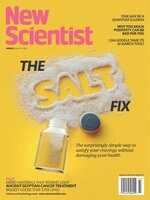 Jun 08 2024
Jun 08 2024
 Jun 01 2024
Jun 01 2024
 May 25 2024
May 25 2024
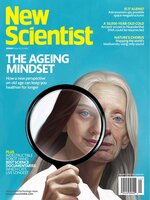 May 18 2024
May 18 2024
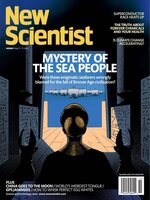 May 11 2024
May 11 2024
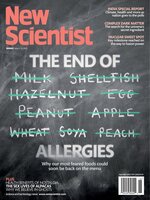 May 04 2024
May 04 2024
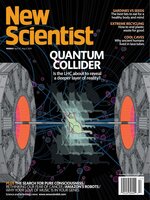 Apr 27 2024
Apr 27 2024
 Apr 20 2024
Apr 20 2024
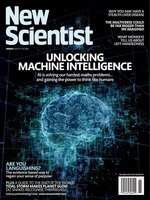 Apr 13 2024
Apr 13 2024
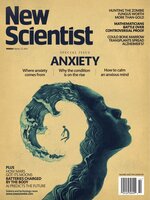 Apr 06 2024
Apr 06 2024
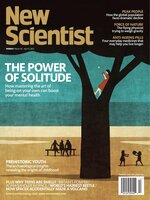 Mar 30 2024
Mar 30 2024
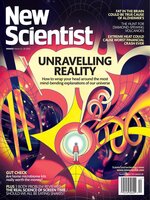 Mar 23 2024
Mar 23 2024
 Mar 16 2024
Mar 16 2024
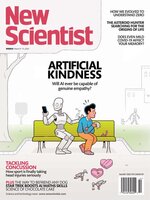 Mar 09 2024
Mar 09 2024
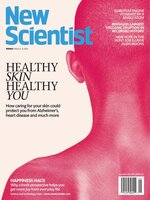 Mar 02 2024
Mar 02 2024
 Feb 24 2024
Feb 24 2024
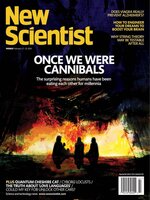 Feb 17 2024
Feb 17 2024
 10 Feburary 2024
10 Feburary 2024
 Feb 03 2024
Feb 03 2024
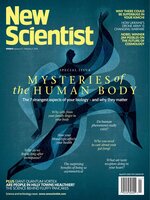 Jan 27 2024
Jan 27 2024
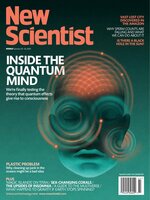 Jan 20 2024
Jan 20 2024
 Jan 13 2024
Jan 13 2024
